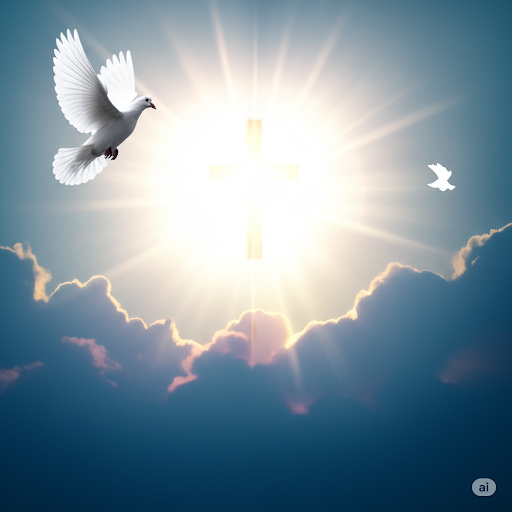
Recently my wife and I made a down payment on a new home.
As I signed the documents, I couldn’t help but think of Paul’s words in Ephesians 1:13–14 and 2 Corinthians 1:22, where he describes the Holy Spirit as a guarantee, a deposit, a down payment—the Greek word arrabōn—on the full inheritance God has promised His people.
When properly understood, this is one of the most reassuring of all scriptural promises because it affirms that God’s work in us is already underway and guaranteed to be completed.
The term Paul uses—arrabōn—was a legal and commercial term in the Greco-Roman world. It was used in contracts for goods, land, or even engagements (betrothals)—a kind of “earnest money.”
It referred to a first installment, pledge, or deposit that guaranteed the rest of a transaction would follow. It had three key features:
- Binding: It obligated the buyer to complete the purchase.
- Non-refundable: Unless the seller defaulted, the deposit was not returned.
- Partial possession: The buyer didn’t yet own the full thing but had already begun to receive it.
- In addition, a down payment was often witnessed publicly and recorded.
A down payment in real estate is binding. It’s a real stake in the final purchase. The buyer is saying, “I’m serious. This is just the beginning.” A down payment on a house gives you real ownership and a legal claim
Paul borrows this commercial term to express theological truth: God is not merely promising future blessings—He’s already begun delivering them in the person of the Spirit.
When God gives us His Spirit, He is saying, “You are mine. What you have now is just the beginning of what I’ve promised.” Receiving the Spirit means you already belong to God—and He will surely bring His work to completion.
The receipt of the spirit is a guarantee that what is begun will be completed. (cf. Philippians 1:6). God is assuring us that he is good on all his promises. He is declaring to us that he has justified us and that he WILL sanctify and glorify us. The Spirit is God’s pledge that He will finish what He started.
In the Hebrew Bible, especially in the prophets, the Spirit is associated with the messianic age, the resurrection, and the restoration of God’s people (e.g., Ezekiel 36:26–27, Joel 2:28–29). To receive the Spirit meant that the future age had already begun to break into the present. It is a promise that believers can begin to enjoy resurrection life right here and now. We do not need to wait until the resurrection, but can begin to experience the inheritance now. The spirit not only assures us of future blessings but also empowers us now.
Reversing the Analogy: Who Makes the Down payment?
As a Latter-day Saint, I think I almost reversed Paul’s analogy of the Spirit as a down payment. In my mind, it felt like I was the one making the initial payment—through obedience, ordinances, and covenant-keeping. My faithfulness was the earnest money, and if I proved worthy, God would make good on His end with exaltation. The Holy Spirit was more like a trial run or probationary gift, something that could be lost depending on my faithfulness.
But that is exactly backwards.
In the Bible it is God who gives the Spirit as a guarantee—the first installment of our inheritance. God secures us by giving Himself to us in advance. The presence of the Holy Spirit is not our proof of worthiness; it’s God’s pledge that we are his and he will bring us home.
This reversal echoes all the way back to Genesis 15. When God makes a covenant with Abram, He instructs Abram to participate in a traditional covenant ceremony by cutting animals in half and laying them opposite each other. In the ancient world, both parties would walk between the carcasses to say, in effect, “May this happen to me if I break this covenant.” But then something astonishing happens:
“When the sun had gone down and it was dark, behold, a smoking fire pot and a flaming torch passed between these pieces.” (Genesis 15:17)
Abram doesn’t walk through the pieces—God does, alone.
God unilaterally binds Himself to the promise. He commits not only to bless but to bear the curse if the covenant is broken. And centuries later, He does exactly that—on the cross.
The down payment of the Spirit, then follows this same pattern. It is God making the move, taking on the cost, and pledging His faithfulness to us.
When we reverse that pattern and put ourselves in the position of guarantor, we fail to appreciate the sheer graciousness of what God does. We turn or salvation into a transaction that we need to earn through our faithfulness. This robs us of the peace and security that come with God’s unshakable pledge. Instead of resting in the assurance that God will finish what He started, we wonder if we’ve done enough to secure our place. The beauty of the gospel, however, is that God has already made the down payment, and He will complete the work He began, regardless of our performance.

